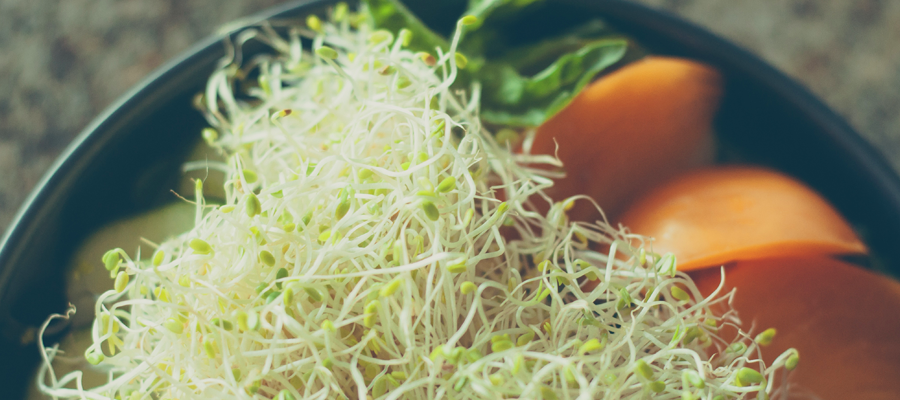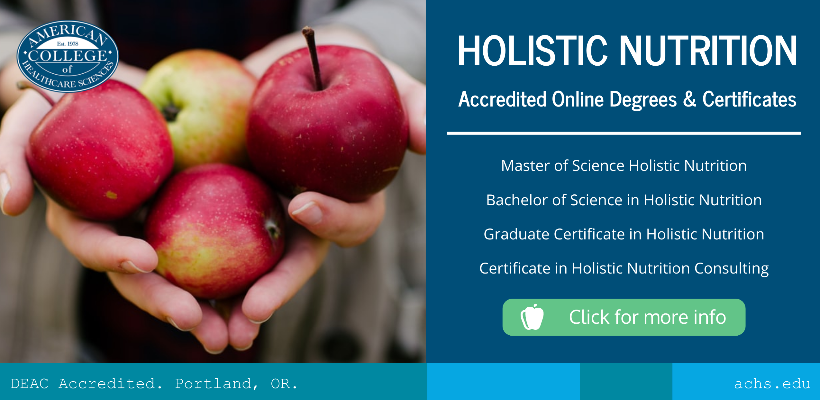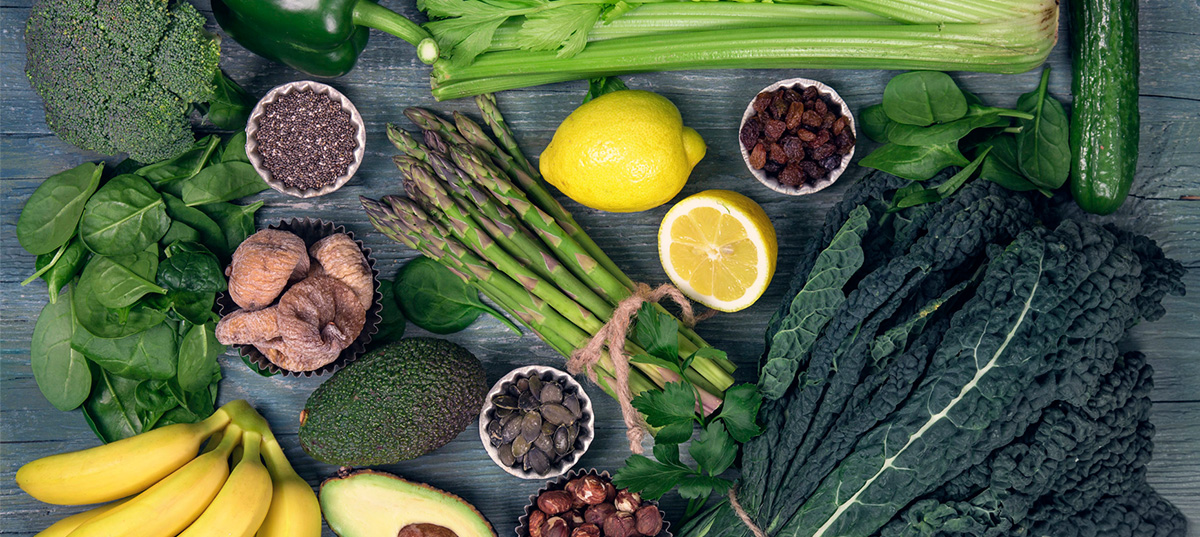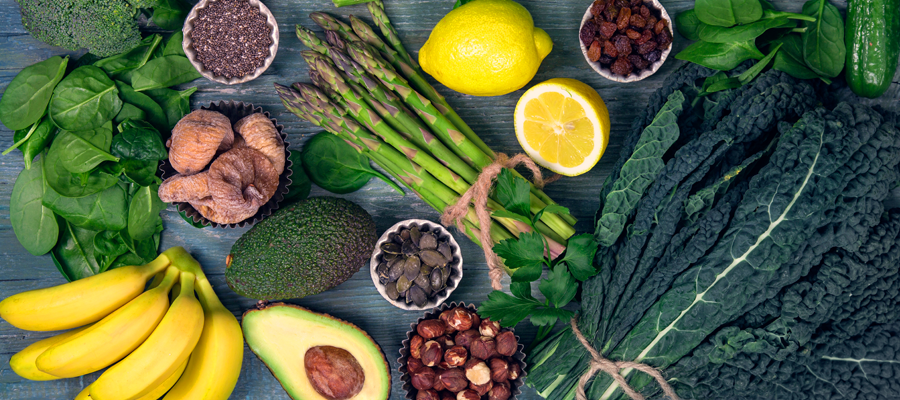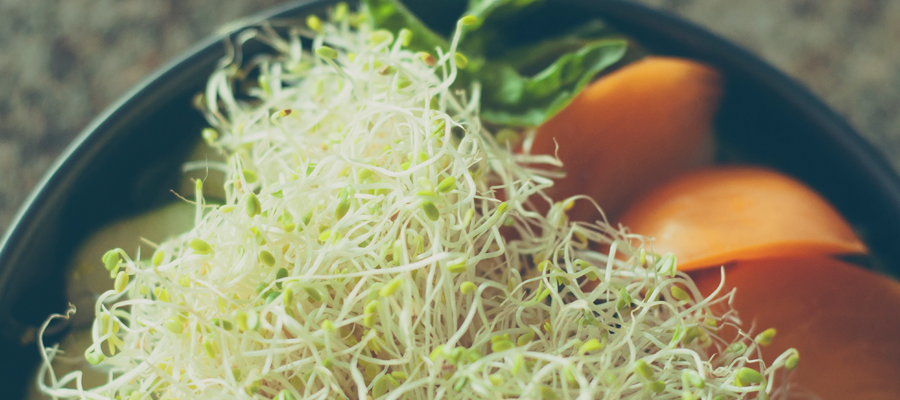
Copyright: pxhere.com
The concept of sprouting seeds from grains and vegetables has been recorded to some degree throughout human history, with references in the Book of Daniel as well as evidence of use among ancient Chinese physicians who were believed to have used them to heal and cure illnesses. Sprouts like alfalfa, broccoli and wheatgrass, have been utilized as a dietary food source among health-conscious communities around the world since the 1960's. It wasn't until the 80's and 90's, however, that consuming raw sprouts as a salad vegetable became popular amid a more mainstream audience.
What makes sprouts healthy?
Sprouts are a raw, living superfood germinated from the seeds of various plants that provide a highly concentrated source of predigested vitamins, minerals, amino acids, fatty acids, chlorophyll and other health enhancing phytochemical compounds unique to each variety. These living seeds release nutrients upon sprouting to naturally help the plant develop during the beginning stages of its growth cycle. This results in a highly nourishing food that is full of fiber as well as a fresh flavor and texture.
Sprouts are a super food.
They became particularly famous in 1997, when researchers from John Hopkins University discovered that broccoli sprouts contained major amounts of the substance glucoraphanin, a precursor to the natural antioxidant and cancer-inhibiting detoxifying isothiocyanate called sulforaphane (SGS). A recent study even indicates that broccoli sprouts may be used to help fight and manage schizophrenia.
Sprouts are one of the best foods we can grow and eat due to their many health and environmental benefits. Experts estimate that there are many times more enzymes in sprouts than in most raw fruits and vegetables. Enzymes are special types of proteins that act as catalysts for all your body’s functions. Extracting more vitamins, minerals, amino acids, and essential fatty acids from the foods we eat ensures that our body has the nutritional building blocks of life we need.
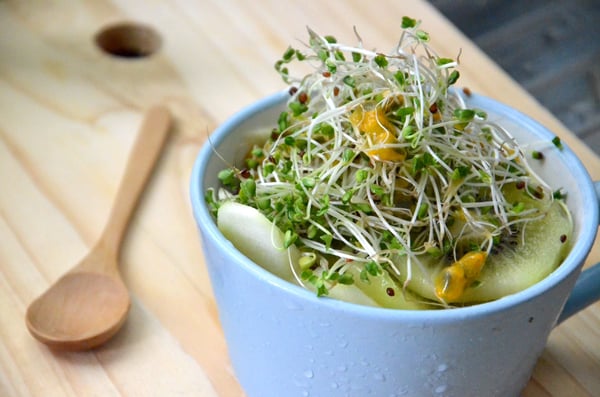
Copyright: pxhere.com
Sprouts have a robust nutrient profile.
The quality of protein in beans, nuts, seeds, or grains increases when they are sprouted due to the soaking and sprouting process, improving its nutritional value. The amino acid lysine needed to prevent cold sores and to maintain a healthy immune system increases significantly during the sprouting process as well.
Another benefit is that the fiber content of beans, nuts, seeds, or grains also increases substantially which helps support weight loss as it binds to fats and toxins in our body to escort them out quickly before they absorb through the walls of the intestines and into the blood stream. Essential fatty acid content increases during sprouting. Many of us are deficient in these fat-burning essential fats because they aren’t always common in our modern diet.
Vitamin content increases dramatically. This is especially true of vitamins A, B-complex, C, and E. The vitamin content of some seeds, grains, beans, or nuts increases by up to 20 times the original value within only a few days of sprouting. Research shows that during the sprouting process beansprouts increase in vitamin B1 by up to 285 percent, vitamin B2 by up to 515 percent, and niacin by up to 256 percent.
How can I include more sprouts in my diet?
It’s easy to prepare and grow sprouts at home all year long both outdoors and indoors for those of us who are urban city dwellers. The big benefit is the nice quantity of fresh living produce we can get from only a small amount of seeds. The seeds have a long shelf life and are extremely cost effective when purchased by the pound.
Sprout seeds are first soaked and rinsed to remove enzyme inhibitors and also to help initiate germination. As the seed is nutritionally activated through the process of sprouting, it begins to break down starches into simpler carbohydrates, fats into fatty acids and proteins into amino acids. This, in effect, makes these nutritional properties more bioavailable to us when we consume them.
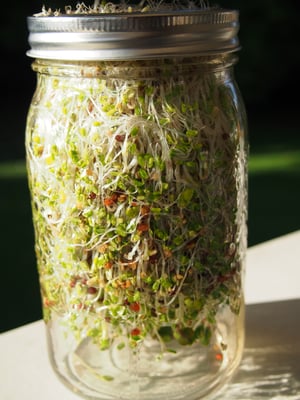 Jar sprouting is the easiest method for beginners and only requires a jar with a mesh lid for draining and of course about a tablespoon of seeds. While most seeds are primarily grown as "sprout vegetables", there are a few grains, like rye, quinoa, lentils, buckwheat and wheatberries, that can be sprouted for 1-2 days to increase their nutritional value and then further processed, for example, into dehydrated sprouted breads, crackers, pizza crusts. to make rejuvelac or add raw to a salad.
Jar sprouting is the easiest method for beginners and only requires a jar with a mesh lid for draining and of course about a tablespoon of seeds. While most seeds are primarily grown as "sprout vegetables", there are a few grains, like rye, quinoa, lentils, buckwheat and wheatberries, that can be sprouted for 1-2 days to increase their nutritional value and then further processed, for example, into dehydrated sprouted breads, crackers, pizza crusts. to make rejuvelac or add raw to a salad.
Sprouting grains and some legumes before preparing them in recipes makes them easier to digest and assimilate. This is also true for some of the nuts and seeds like hulled sunflower, chia, pumpkin and almond.
You can grow your sprouted seeds by poking drain holes in a cookie sheet, filling it with organic soil and spreading the sprouted seeds over the top. It’s amazing how quickly you have a crop ready to harvest. Some popular sprouts include: alpha, broccoli, buckwheat grass, clover, cress, fenugreek, mung bean, pea shoots, radish, sunflower, and wheatgrass.
Raw sprouts in general, have received a lot of negative media attention regarding their safety for human consumption. This started way back in the mid to late 1990's when the U.S. Food and Drug Administration issued a warning to the general public not to consume raw sprouts because of reported contamination of pathogenic bacteria, chiefly Salmonella and Escherichia coli.
This was a result of a multi-state outbreak of E. coli infections that occurred in the United States from the consumption of alfalfa sprouts. It was later discovered that the actual seeds themselves were the source of contamination and "traced back to one common lot harvested in Idaho. When contaminated seeds are used, the sprout incubation process can further multiply these toxic substances. Both Salmonella and E. coli are pathogenic strains of bacterium that are mainly transferred to foods through small particles of fecal matter that usually come from domesticated livestock or fertilizers used on seed producing crops.
According to the Organic Farming Research Foundation, "Organic standards set strict guidelines on manure use in organic farming: either it must be first composted, or it must be applied at least 90 days before harvest, which allows ample time for microbial breakdown of pathogens. I personally recommend purchasing organic seeds and organic soil to achieve success in harvesting and enjoying the health rewards of home sprouting.
If you’re interested in learning more about nutrition, holistic health and even becoming a nutrition coach, check out www.achs.edu I’ve personally benefitted immensely from the on demand professional development class that I’ve taken. The college’s online accredited certificate and degree programs make learning manageable for busy people like us.
Blog references:
https://www.organicfacts.net/health-benefits/seed-and-nut/sprouts.html
https://www.organicfacts.net/soaked-almonds.html
https://www.superfoodevolution.com/super-sprouts.html
About American College of Healthcare Sciences
 Founded in 1978, ACHS.edu is a Portland, Ore.-based, accredited college offering online, on-campus, and study abroad integrative health education. With undergraduate and graduate degrees, diplomas, certificates, and continuing education units in integrative health, ACHS makes holistic health and wellness education accessible to a diverse community, including healthcare professionals, military students, stay-at-home parents, and lifelong learners. Specializations include aromatherapy, herbal medicine, holistic nutrition, and integrative health. ACHS is a Certified B Corporation® and was named two of 100 Best Green Workplaces in Oregon 2017 by Oregon Business magazine. ACHS is also accredited by the Distance Education Accrediting Commission (DEAC), which is recognized by the U.S. Department of Education and by the Council for Higher Education Accreditation (CHEA). In response to our commitment to service members, veterans and military spouses, ACHS has been designated as one of the top 16% of military-friendly institutions in the U.S. for nine years in a row. For more information visit achs.edu.
Founded in 1978, ACHS.edu is a Portland, Ore.-based, accredited college offering online, on-campus, and study abroad integrative health education. With undergraduate and graduate degrees, diplomas, certificates, and continuing education units in integrative health, ACHS makes holistic health and wellness education accessible to a diverse community, including healthcare professionals, military students, stay-at-home parents, and lifelong learners. Specializations include aromatherapy, herbal medicine, holistic nutrition, and integrative health. ACHS is a Certified B Corporation® and was named two of 100 Best Green Workplaces in Oregon 2017 by Oregon Business magazine. ACHS is also accredited by the Distance Education Accrediting Commission (DEAC), which is recognized by the U.S. Department of Education and by the Council for Higher Education Accreditation (CHEA). In response to our commitment to service members, veterans and military spouses, ACHS has been designated as one of the top 16% of military-friendly institutions in the U.S. for nine years in a row. For more information visit achs.edu.

